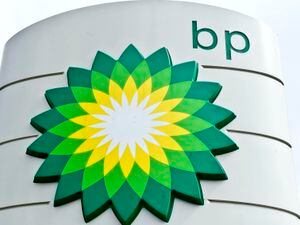BP warns of £14bn hit as Covid-19 leaves lasting mark
The energy giant reduced the price it thinks it will get from its oil from 75 US dollars per barrel to 55.

BP has been forced to reduce the price it thinks it can get for the oil left in its underground reserves, as the energy giant took charges and write-offs that could reach £14 billion.
The company said the coronavirus pandemic could have an “enduring impact” on the global economy, and reduce the need for energy for a long time.
It means that prices, which plunged to their lowest in decades in April, are unlikely to bounce back to where they had been before the crisis, BP said.
The oil giant reduced the value of its remaining reserves from 75 US dollars per barrel to 55 dollars up to 2050.
That would still be a significant increase on current prices. Brent crude, the international standard, was trading at 38.24 dollars on Monday morning.
But the reduction, and other non-cash charges, could cost BP between 13 and 17.5 billion dollars (£10.4 billion to £14 billion), new boss Bernard Looney revealed.

The Irishman, who set out a plan to make the company emissions-neutral by the middle of the century, spun the Covid-19 pandemic as a way to accelerate global efforts to tackle climate change and meet the targets of the Paris Agreement.
“We have reset our price outlook to reflect that impact and the likelihood of greater efforts to ‘build back better’ towards a Paris-consistent world,” he said.
“We are also reviewing our development plans. All that will result in a significant charge in our upcoming results, but I am confident that these difficult decisions – rooted in our net-zero ambition and reaffirmed by the pandemic – will better enable us to compete through the energy transition.”
This could mean that BP decides to walk away from oil fields it was planning to develop.
“BP is also reviewing its intent to develop some of its exploration prospects and consequently is assessing the carrying values of the group’s intangible assets,” it said in a statement.
The news was welcomed by Charlie Kronick, a senior climate adviser at environmental group Greenpeace.
“This huge dent in BP’s balance sheet suggests it has finally dawned on BP that the climate emergency is going to make oil worth less – something that smart investors have been warning for some time,” he said.
“This is long overdue, and accelerating the switch to renewable energy will be vital not only to the climate but to any oil company hoping to survive in a zero-carbon future.”
Last week, Mr Looney took one of the toughest decisions of his less than five months in charge, as he revealed that the company would be slashing 10,000 jobs in part because of the coronavirus crisis.
The price of oil fell to below 19 dollars per barrel for Brent earlier this year, as a glut of supply and falling demand hit the market.
It has since recovered some ground.
Both moves to write down assets and cut jobs have led to speculation that BP’s dividend cannot be long for this world.
Some analysts were left scratching their heads when Mr Looney’s board increased what it pays to shareholders in the middle of the Covid-19 pandemic.
Conversely rival oil giant Shell slashed its dividend by two-thirds – the first reduction since the Second World War.
Michael Hewson, at CMC Markets, said Monday’s news was not unexpected.
“Something like this has been long overdue from BP, already paying a dividend that has been unsustainable for several years, and, with a debt level that is already too high, the company now faces any number of unpalatable choices,” he said.
“Having seen its sector peer Royal Dutch Shell bite the bullet and cut its dividend a few weeks ago, it would appear that BP is likely to have to follow suit, if it wants to reduce its already high debt levels and shore up its balance sheet for the new challenges ahead.”
Helal Miah, at The Share Centre, said: “This morning’s announcement may be the management’s way of softening the blow and leading us to expect a cut in the dividend when they publish the second quarter results in early August.”
Shares dropped by as much as 6.5% on Monday morning.





